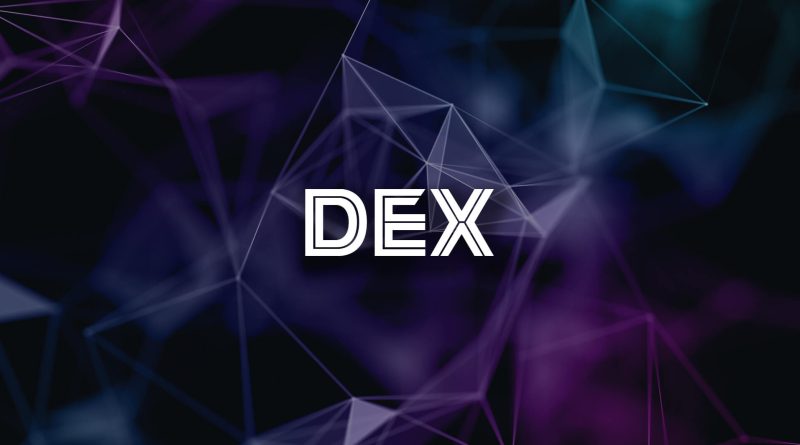Decentralized Exchanges and Liquidity Pools
Decentralized finance (DeFi) has become one of the most talked-about topics in the blockchain and cryptocurrency space. It promises to revolutionize traditional finance by providing a more inclusive, accessible, and transparent financial system. One of the most significant aspects of DeFi is the emergence of decentralized exchanges (DEXs) and liquidity pools, which are transforming the way people trade cryptocurrencies. In this article, we will explore what decentralized exchanges and liquidity pools are, their benefits, and their potential to reshape the financial landscape.
What are Decentralized Exchanges?
A decentralized exchange (DEX) is a type of cryptocurrency exchange that operates on a decentralized blockchain network. Unlike centralized exchanges, which are controlled by a single entity, decentralized exchanges are operated by a network of nodes that work together to maintain the exchange’s functionality. This peer-to-peer network allows traders to trade cryptocurrencies directly with each other, without the need for intermediaries.
Decentralized exchanges are powered by smart contracts, which are self-executing programs that automatically execute trades when certain conditions are met. These smart contracts are designed to ensure that trades are executed in a fair and transparent manner, without any risk of fraud or manipulation.
Benefits of Decentralized Exchanges
Decentralized exchanges offer several benefits over centralized exchanges. Firstly, they provide users with greater control over their funds. In a centralized exchange, users have to deposit their funds into the exchange’s wallet, which can be vulnerable to hacking or theft. In contrast, decentralized exchanges allow users to maintain control of their funds at all times, as trades are executed directly from their own wallets.
forms of attack. Since decentralized exchanges are not controlled by a single entity, they are much harder to hack or manipulate. The decentralized nature of these exchanges also makes them more resistant to censorship, as there is no central point of control that can be targeted.
Finally, decentralized exchanges are more accessible and inclusive than centralized exchanges. Anyone can use a decentralized exchange, regardless of their location or financial status. This makes it easier for people who are unbanked or underbanked to access financial services, as they do not need to go through the traditional banking system to trade cryptocurrencies.
What are Liquidity Pools?
A liquidity pool is a group of tokens that are locked in a smart contract on a decentralized exchange. These tokens are used to facilitate trading on the exchange by providing liquidity for traders. Liquidity pools are typically composed of two tokens, such as ETH and a stablecoin like USDT. Traders can deposit their tokens into the pool and earn trading fees in return.
The price of the tokens in the liquidity pool is determined by a mathematical formula, which takes into account the ratio of the two tokens in the pool. This formula ensures that the price of the tokens remains stable, regardless of the amount of trading volume on the exchange.
Benefits of Liquidity Pools
Liquidity pools offer several benefits over traditional order book-based trading. Firstly, they provide traders with instant liquidity, as there is always a pool of tokens available for trading. This eliminates the need for traders to wait for orders to be filled, which can be a significant time cost in fast-moving markets.
Secondly, liquidity pools provide traders with a more stable price environment. Since the price of the tokens in the pool is determined by a mathematical formula, there is less risk of price manipulation or volatility. This makes liquidity pools a popular choice for stablecoin trading, as traders can be confident that the price of the stablecoin will remain stable over time.
Finally, liquidity pools are more accessible and inclusive than traditional order book-based trading. Anyone can participate in a liquidity pool, regardless of the size of their trading account. This makes it easier for small traders to participate in the market and earn trading fees, which can be a significant source of income in the long run.
Potential Risks of Decentralized Exchanges and Liquidity Pools
Despite the benefits of decentralized exchanges and liquidity pools, there are also potential risks associated with these platforms. One of the most significant risks is the lack of regulation. Since these platforms operate on a decentralized blockchain network, there is no central authority to regulate them. This can make it difficult for users to seek recourse in the event of fraud or misconduct.
Another potential risk is the lack of liquidity. While liquidity pools provide instant liquidity, they may not be able to handle large trading volumes. This can lead to significant price slippage, which can impact traders’ profits. Additionally, since liquidity pools rely on mathematical formulas to determine token prices, they may not be able to react quickly to sudden market movements.
Finally, decentralized exchanges and liquidity pools are vulnerable to smart contract vulnerabilities. Smart contracts are self-executing programs that are designed to be transparent and secure. However, they are also vulnerable to bugs or vulnerabilities that can be exploited by hackers. In the event of a smart contract vulnerability, funds locked in the liquidity pool or exchange may be at risk of theft or loss.
Conclusion
Decentralized exchanges and liquidity pools are a significant development in the world of DeFi. They offer a more accessible, inclusive, and transparent way for people to trade cryptocurrencies. Decentralized exchanges provide users with greater control over their funds, while liquidity pools offer instant liquidity and a stable trading environment. However, it is important to be aware of the potential risks associated with these platforms, including lack of regulation, liquidity issues, and smart contract vulnerabilities. As DeFi continues to evolve, it will be interesting to see how these platforms develop and reshape the financial landscape.

